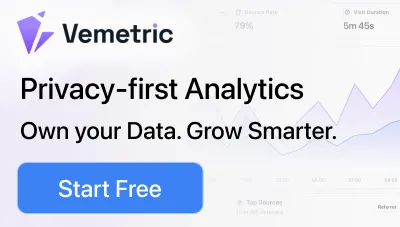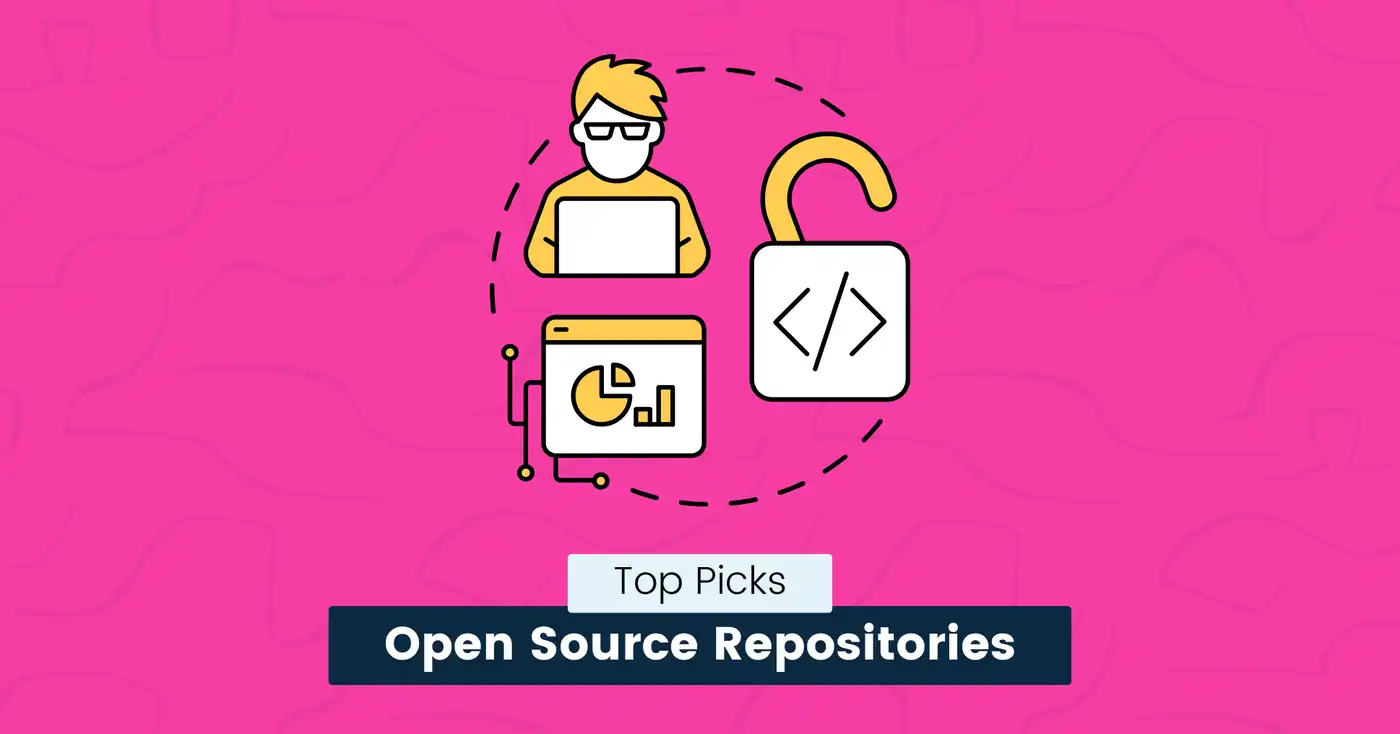
Top 10 Open Source Repositories: You Can't Afford to Ignore (2025)
Contributing to open-source projects is one of the best ways for a developer to learn and improve coding skills. Not only contributing but utilizing open-source development solutions can save tons of time.
With millions of projects available, where do you start?
Picking the wrong one can mean dealing with bugs, missing updates, or spending extra time fixing issues instead of building something great.
We’ve done the hard work for you by shortlisting the best open-source repositories that you can use for practical utilities, code examples, or inspiration.
Let’s get started.
Why Do Open-Source Repositories Matter?
Open-source repositories are essential tools that make software development faster and more accessible for everyone.
The code is publicly available for anyone to view, use, and modify.
This saves time and money and gives people the ability to collaborate on projects or solve common problems.
These repositories are usually hosted on platforms like GitHub and power everything from websites to apps and even the tools and frameworks used to write code.
Some key benefits offered by open-source repositories include:
- Free Access: Anyone can download the code without paying for it.
- Updated Resources: You can access an extensive collection of current materials, documentation, and examples that explain how to use or contribute to the code.
- Collaboration: Developers can collaborate to improve the code by fixing bugs, adding features, or creating better documentation.
- Faster Problem-Solving: Instead of solving a problem on your own, you can rely on solutions that others have already shared.
- Great for Learning: You can study code written by experienced programmers and improve your skills.
- Reliable Software: The community regularly reviews and updates popular open-source repositories, making them reliable tools for building software. They also track every change made to the code, so it’s easy to see what’s been updated or go back to an earlier version if needed.
snappify will help you to create
stunning presentations and videos.
Top 10 Open Source Repositories
Here’s an overview of some noteworthy open-source tools every developer should check out:
Vemetric
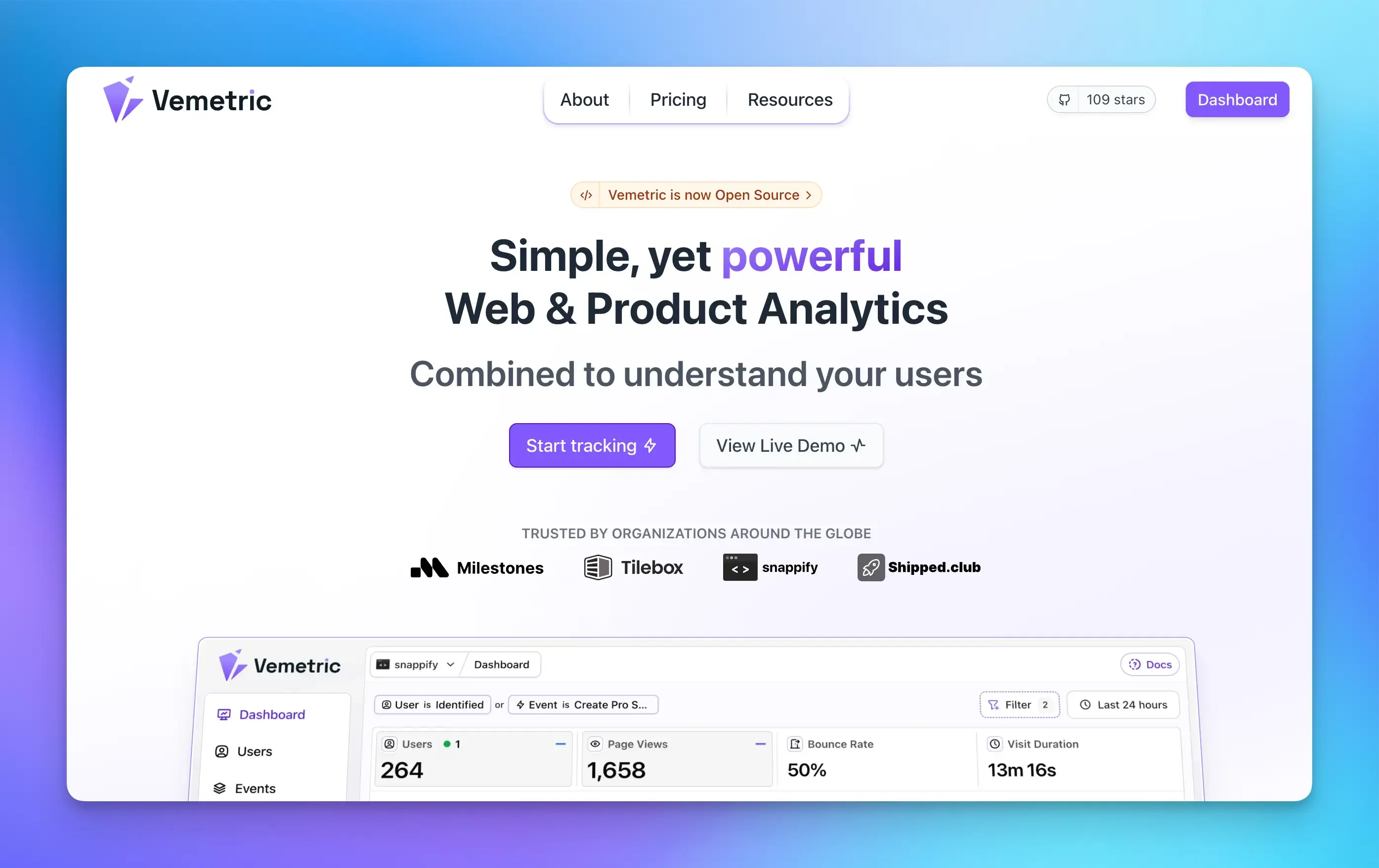
Vemetric is an open-source analytics platform that combines web- and product analytics into a single tool.
It’s an alternative to tools like Google Analytics and PostHog and ideal for developers and businesses looking deep insights without compromising user privacy.
Key Features:
- Track how users interact with your product and how they find your website in one dashboard.
- No cookies used by default.
- Lightweight script to reduce the page load times.
- Invite team members or share dashboards publicly.
- Powerful filtering and segmentation.
Use Cases:
- Unified Analytics.
- User journey tracking.
- Content engagement metrics.
AppFlowy
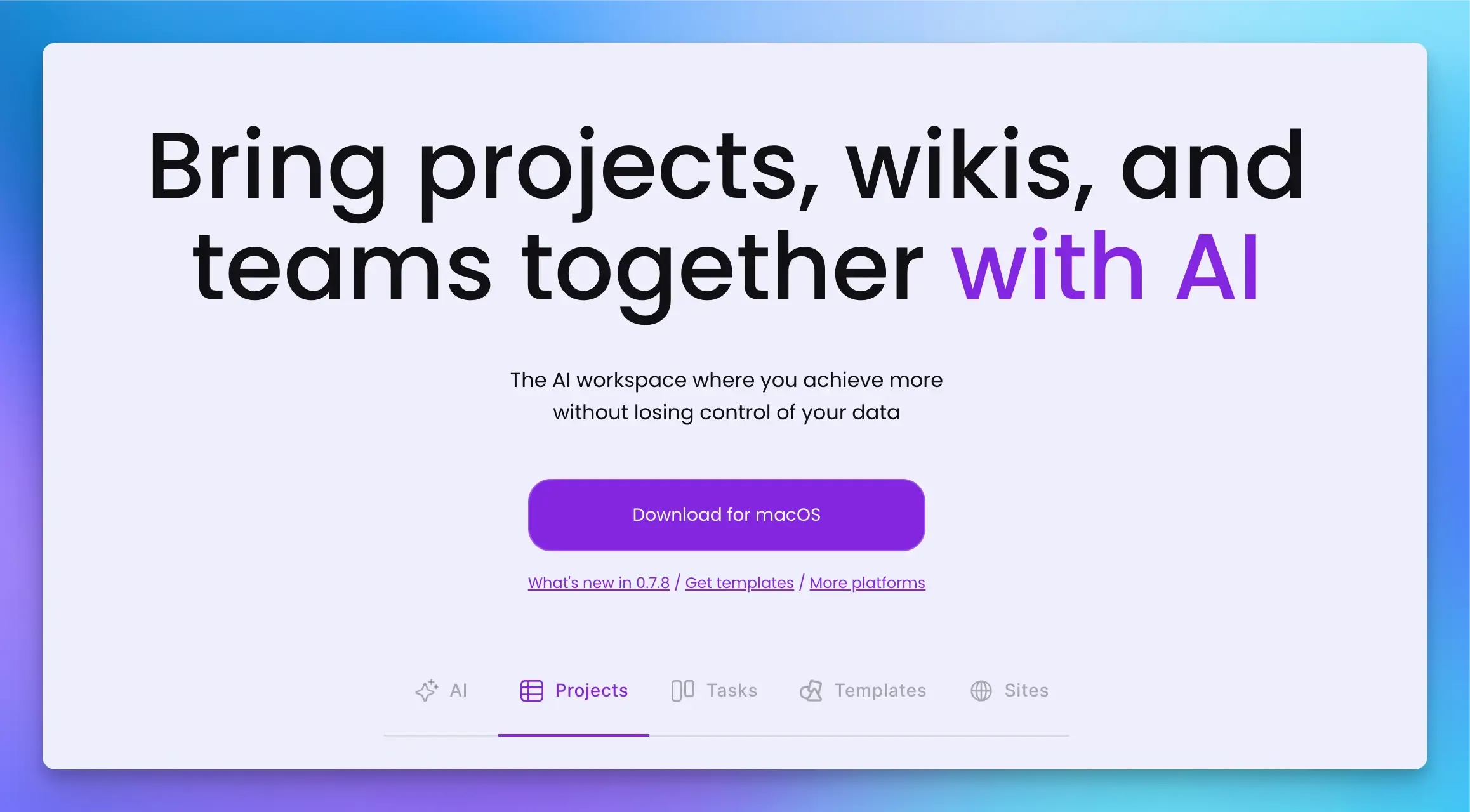
AppFlowy is an open-source alternative to popular productivity tools like Notion and Trello.
It stands out because of its focus on privacy and its flexibility in designing and customizing the tool to fit specific needs.
It’s a great choice for individuals and teams looking for a secure workspace to manage tasks, take notes, and collaborate on projects.
Key Features:
- Self-hosting for complete control over your data.
- AI-powered contextual insights.
- Modify or extend features with plugins and templates.
- A rich text editor for documentation.
- Cross-platform support (Windows, macOS, and Linux).
- 58.9k GitHub stars.
Use Cases:
- Task and project management.
- Team collaboration.
- Custom business solutions.
Taipy
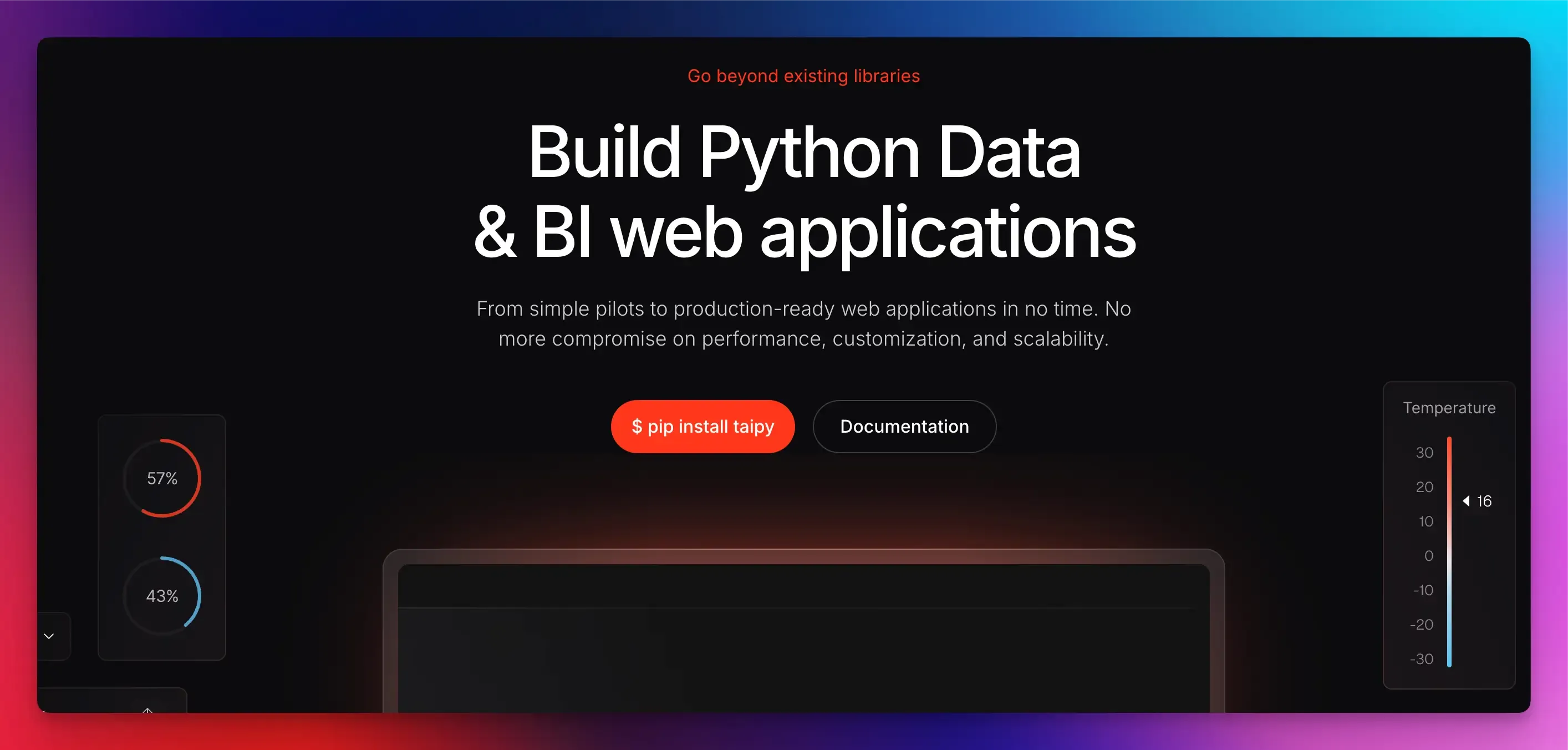
Taipy is an open-source Python library for building interactive, data-driven web applications for AI and data science workflows.
Its built-in decimator for charts allows data scientists and ML engineers to manage large datasets by automatically reducing the number of data points to save time and memory without sacrificing data quality.
This simplifies developing user-friendly dashboards and decision-making tools, allowing developers to concentrate on insights rather than technical difficulties.
Key Features:
- Simple GUI for dashboard design, backend, and DevOps tasks.
- Build production-ready web apps using only Python.
- Offers pre-built themes, charts, and visual elements for quick design.
- Comprehensive scenario and data management are needed for better decision-making.
- Real-time updates and data visualization.
- 17.5k GitHub stars.
Use Cases:
- Data and AI web applications.
- AI and ML prototyping.
- Data science and analysis.
NocoDB
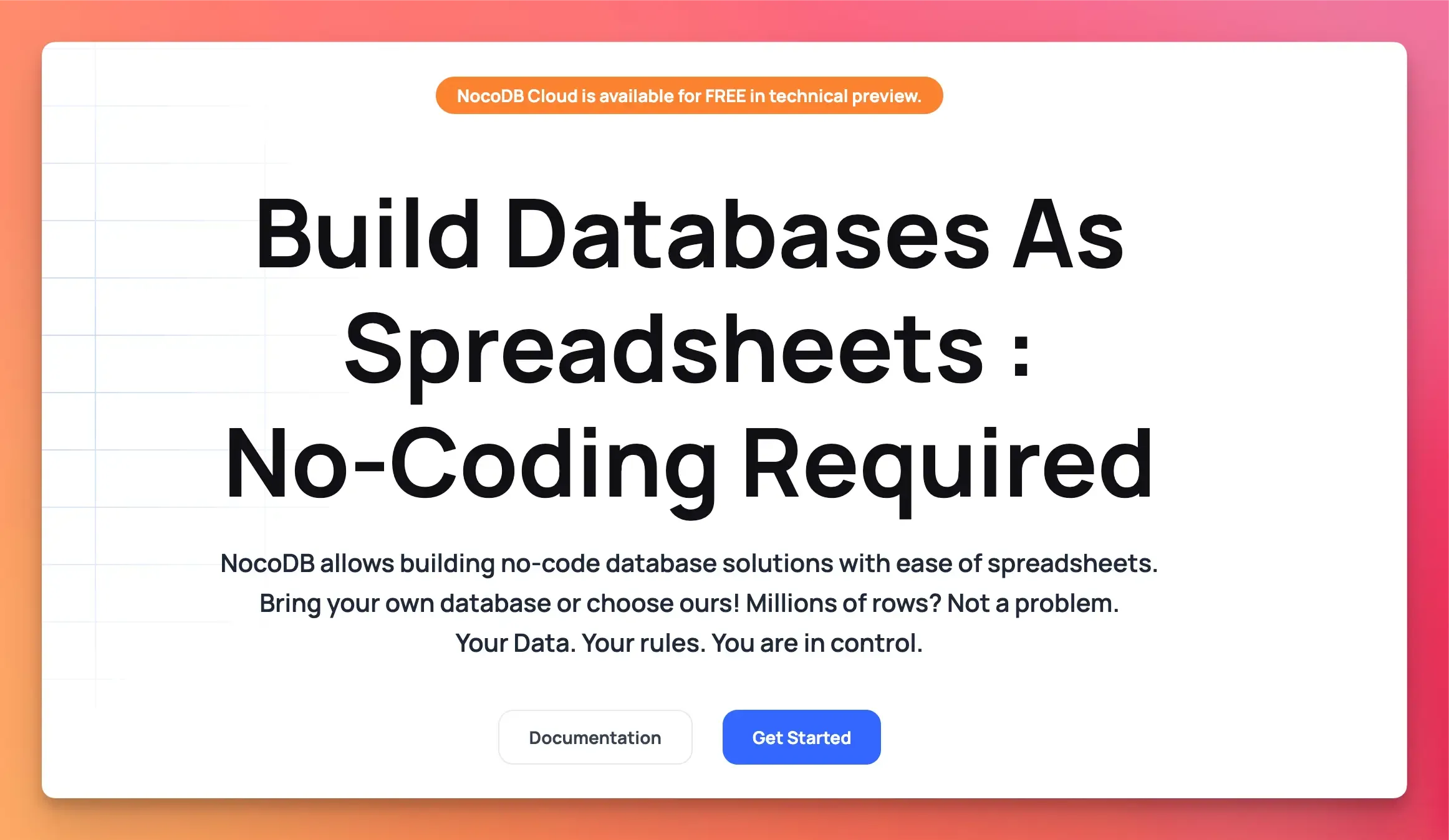
NocoDB is an open-source, no-code platform for creating online databases.
It allows both technical and non-technical users to manage, collaborate, and automate workflows without writing complex code.
It is a self-hosted alternative to Airtable that provides greater control and flexibility in converting existing databases into smart, user-friendly spreadsheets.
Key Features:
- It offers multiple views, such as a grid, gallery, forms, and Kanban, to visualize and organize data.
- Supports custom workflows and automation for repetitive tasks.
- Allows multiple users to work simultaneously.
- Easy schema visualization and control with flowchart diagrams.
- 50.5k GitHub stars.
Use Cases:
- Database management.
- Project collaboration.
- CRM and inventory management.
- Data collection and analysis.
Kestra
Kestra is an open-source data orchestration and automation platform that makes managing complex workflows easy.
It offers a user-friendly interface for building workflows involving large-scale data processing and integrations, with support for scheduled and event-driven triggers.
Key Features:
- User-friendly interface for workflow management.
- Dynamic workflows with live-updating topology view.
- Embedded code editor with autocompletion and syntax validation.
- Declarative YAML configuration for easy workflow building, dependency management, and collaboration.
- Integrates with over 500 plugins, data sources, tools, and APIs.
- Built-in scalability for large data operations.
- 14.9k GitHub stars.
Use Cases:
- Automated data pipeline orchestration.
- Workflow monitoring and debugging.
- Cloud resource management.
Composio
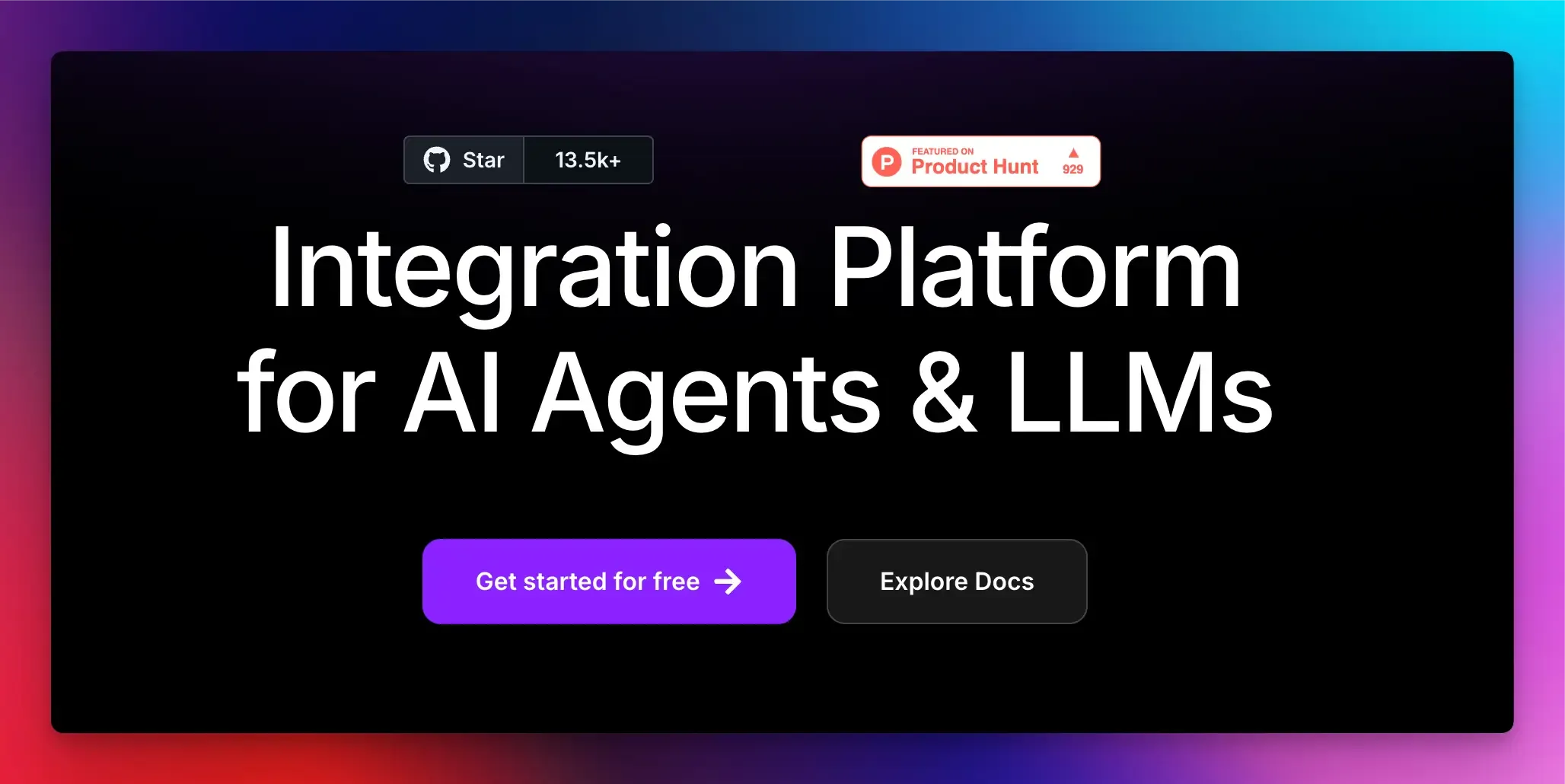
Composio is a powerful platform that facilitates the integration of over 150 applications and tools into AI agents and large language models (LLMs) to simplify complex automation.
It enables developers to quickly build and deploy custom AI solutions by providing easy access to a wide range of external tools and services.
Key Features:
- Use tools with agent frameworks like OpenAI, Autogen, Claude, Gemini, and more.
- Allows integration with just a single line of code.
- Supports six different authentication protocols for enhanced security.
- Works with any programming language through an API-first approach.
- 13.7k GitHub stars.
Use Cases:
- Automation of repetitive tasks.
- Building custom AI solutions.
- Quick prototyping and deployment.
NocoBase
NocoBase is an open-source, no-code development platform for building business applications, internal tools, and enterprise solutions.
Its modular architecture and extensibility make it a powerful tool for developers to create tools like CRMs, project management systems, and other data-driven applications.
Key Features:
- Drag-and-drop interface for designing databases, workflows, and apps.
- Allows users to create, modify, and separate data schemas from the user interface for unlimited views.
- One-click switch between usage and UI configuration mode
- Provides blocks and actions for developing interfaces for non-technical users.
- Can be extended with plugins to meet specific needs.
- 13k GitHub stars.
Use Cases:
- Custom business development.
- Dashboards and client portals.
- Centralized data management.
- Task management and workflow automation.
Mattermost
Mattermost is an open source collaboration and communication platform for secure teamwork across the entire software development lifecycle.
It is a great alternative to proprietary software like Slack, Microsoft Teams, and Discord, with additional features for developers and IT teams seeking extra security and privacy.
Key Features:
- Group chats with support for private and public channels.
- Real-time messaging with integrated audio and screen sharing.
- Advanced security features, including encryption, role-based permissions, and self-hosting.
- Dashboards and playbooks for operational tasks and incident management.
- Built-in tools for file sharing, task management, and workflow automation.
- 31.1k GitHub stars.
Use Cases:
- Secure team collaboration.
- Incident management.
- Project and task management.
ToolJet
ToolJet is an open-source, low-code platform allowing developers to build internal tools and business applications quickly.
It reduces the time and resources required to create dashboards, user interfaces, and other custom tools by providing a drag-and-drop interface and pre-built integrations with databases and APIs.
Key Features:
- Quickly create UI without needing to write extensive code.
- Pre-built component library for a quick start.
- Supports multiple databases, APIs, and third-party services.
- Deploy on-premise or on the cloud.
- Extend functionality using JavaScript, APIs, or custom queries.
- Automate businesses processes through event-based triggers and custom workflows.
- 33.5k GitHub stars.
Use Cases:
- Custom dashboards for tracking KPIs.
- Prototyping and data visualization.
- Customer support tools.
Postiz
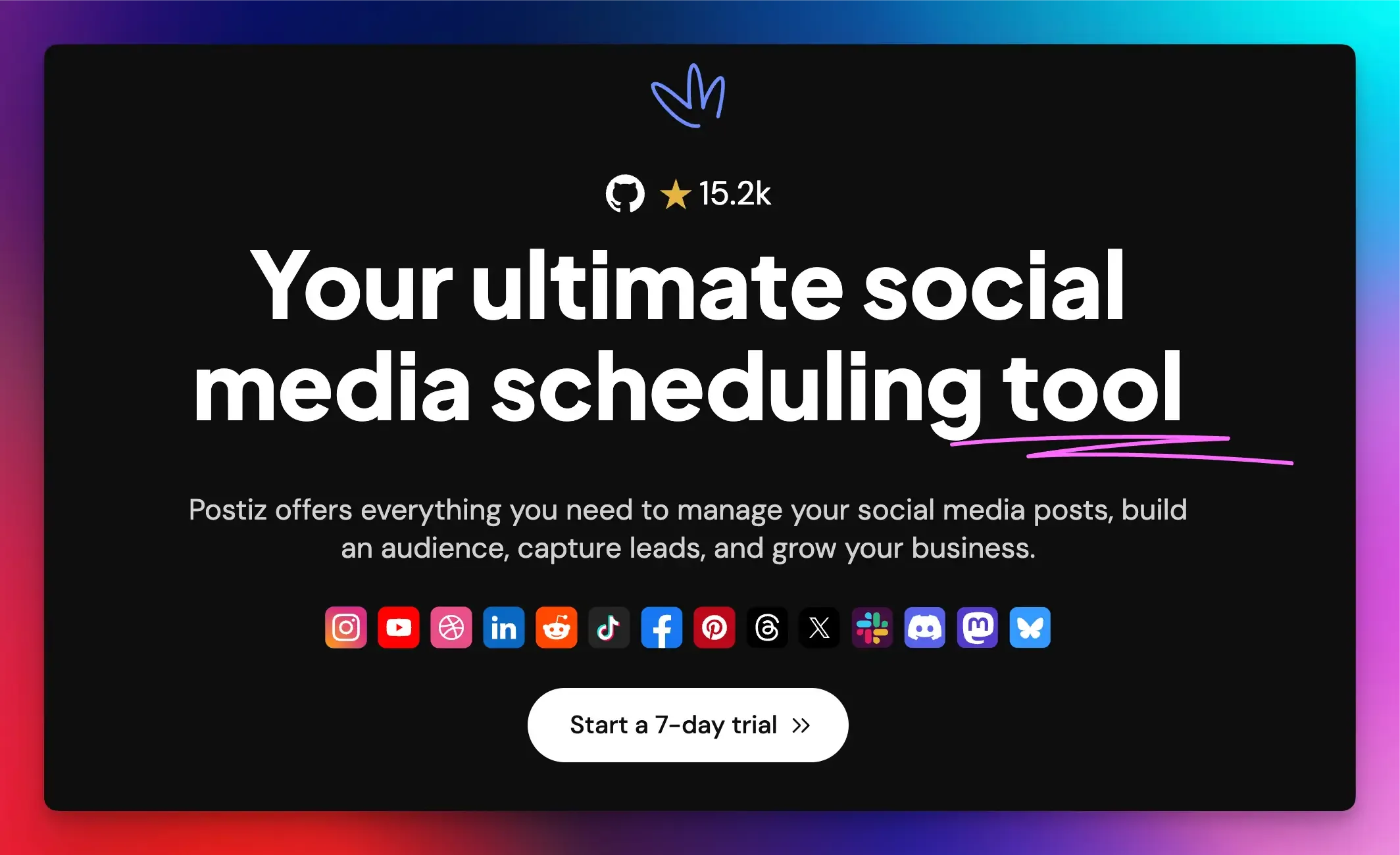
Postiz is an open-source software for social media scheduling and content management across different platforms.
It offers comprehensive features that enable content creators and agencies to automate and optimize their posts and increase their social media presence.
Key Features:
- AI-powered content creation and image generation.
- It provides a Canva-like interface for creating stunning graphics.
- Allows multiple users to manage social media channels and assign tasks.
- Connects users with influencers and brands directly from the platform**.**
- Offers detailed performance tracking and analytics to optimize social media strategy.
- 15k GitHub stars.
Use Cases:
- Social media management.
- Content creation and scheduling.
- Personal brand growth.
snappify will help you to create
stunning presentations and videos.
Final Words
We have listed some of the best open-source repos for various purposes, including app development, collaboration tools, AI integration, and workflow automation.
Whether you are a beginner or an expert developer, this list has something for you.
Choose a project that interests you and start utilizing or contributing to become a better 10x developer.
FAQs:
How do you choose to contribute to an open-source project?
Choose a project that suits your interests, skills, and experience level. Look for active projects with clear contribution guidelines and community support.
How do I contribute to an open-source project?
To become a contributor, you must identify the issues or features you want to work on, fork the repository, make your changes, and submit a pull request for review.
